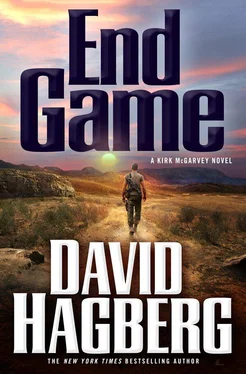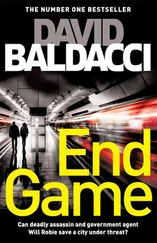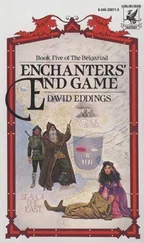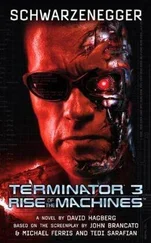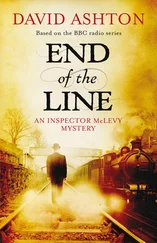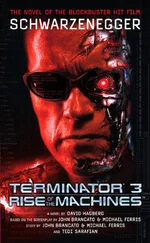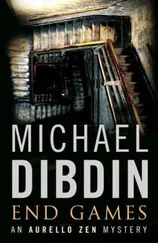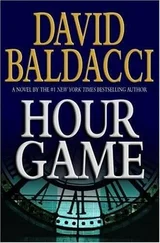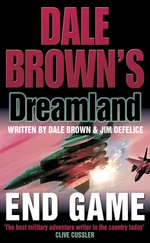Kryptos is a series of sculptures, the largest of which is the one in the courtyard of the CIA’s New Headquarters Building. Made of four copper plates into which four encrypted messages have been cut, it was conceived by the American artist James Sanborn. The enigmatic piece was dedicated on November 3, 1990, when it was placed in the courtyard in plain sight of anyone visiting the Agency cafeteria.
Three of the messages have been deciphered — the fourth remains unsolved to this day. But the messages are said to be linked. The final solution can only be guessed at from the first line of the first puzzle: Between subtle shading and the absence of lights lies the nuance of iqlusion. (The mistaken q was deliberate.)
But there are other smaller pieces scattered around the headquarters campus. Some are engraved with messages in Morse code; another has a compass rose and a lodestone.
The men and women who work for the Agency, at headquarters and elsewhere around the world, either in the open, relatively speaking, or in secret as NOCs, agents working under nonofficial cover, are American patriots — but they are also human beings with all their foibles and problems, some of them serious.
This story is dedicated to them — truly our first line of defense!
Slowly, desperately slowly…
Walter Wager heaved himself off the floor, using the edge of his desk for leverage, blood running down the collar of his white shirt from a ragged wound in the side of his neck. He was an old man, even older than his fifty-four, because of the life he’d led as a deep-cover agent for the Central Intelligence Agency.
He was no longer an NOC, and he’d struggled for the last year, sitting behind a desk, in a tiny office buried on the third floor of the Original Headquarters Building, trying to lead a normal life, trying to fit in with the normal day-to-day routine without the nearly constant danger he’d faced for thirty-five years.
The beginning of the end for him had come eight years ago when his wife, Sandee, had been shot to death during a situation that had gone terribly bad in Caracas. They were meeting with a cryptanalyst from SEBIN, the Venezuelan intelligence service, who’d promised to hand over the latest data encryption algorithms his science directorate had devised. It was late at night in the warehouse district when the transfer of money for a disk had just taken place, and the headlights of a half dozen police vehicles came on, illuminating the three of them.
Sandee slammed her shoulder into the cryptanalyst’s chest, knocking him backward. “Run!” she shouted.
Wager reached for her arm, the same time the police opened fire, hitting her in the back and in her head, and she went down hard.
Something very hot plucked at Wager’s left elbow, and on instinct alone he jogged to the left, away from the headlights, and with bullets slamming into the pavement all around him and singing past his head, he managed to make it into one of the abandoned buildings.
Several cars started up, someone shouted something, and police came after him. But he was running for his life, the adrenaline high in his system. And somehow he managed to escape back into the city to the safe house he’d set up in the first days after his arrival. Sandee had called it: refuge.
“Let’s hope we never have to use it,” she’d said the first time he’d brought her there.
He’d never forgotten her words or the sight of her falling forward, bullets ripping into her body. And no day had gone by since then when her face, the feel of her body, her breath on his cheek, didn’t come to him in the middle of the night.
He was dying now, and of all things, what he would miss the most would be his dreams.
Calling for help would do no good. It was well past midnight, and all the offices on this floor were empty. No one would hear him. But security was just a phone call away. And even if they couldn’t get here in time to save his life, he would be able to tell them who his killer was.
Though not why.
“Don’t touch the phone, Walter,” warned the man behind him.
Wager’s heart pounded in his ears as he reached for the phone on his desk. He felt no real pain, only weakness from the terrible blood loss, and an absolute incredulity not at what was happening but how it was happening.
The face of his attacker was that of a stranger, but the voice was familiar. From years ago, maybe just before the second Iraq war. In the mountains outside of Kirkuk they were looking for WMDs that a lot of people in the Company knew didn’t exist. All that was required were a few photographs, something with a serial number or any sort of markings the analysts at Langley could use.
There’d been seven of them spread out over a twenty-five-mile line, and he remembered the guy they called the Cynic, who’d called himself a realist: the only sane man in a world gone completely batshit.
The man took Wager by the arm and gently turned him around so they were facing each other. The Cynic, if that was who he was, had a lot of blood around his mouth.
“It’s too late to call anyone.”
Wager was hearing music from somewhere, very low but very close. Church organ music, complicated.
“You never had culture, Walter. Too bad,” the man said. His voice was soft, with maybe a British accent. But high-class.
“Why?”
“Why what? Why am I here? Why have I decided to kill you? Why like this?” The Cynic turned away, his eyes half closed, a dreamy expression on his bloody face.
The music was Bach’s Toccata and Fugue in D minor. Wager couldn’t say why he’d dredged that up out of some distant memory, but he was sure of it, and it was coming from a small player in the breast pocket of the Cynic’s dark blue blazer.
“Yes, why?” Wager asked, his voice ragged and distant even in his own ears. He felt cold and weak, barely able to stay on his feet.
“Sandee was such a lovely girl. Was from the beginning, She never belonged with a bore like you.”
The Cynic had a round, perfectly normal face, small ears, thin sand-colored hair, a slight build. Everyman. Someone you would never pick out of a crowd, someone you would never remember. Perfect in the role of an NOC. The accent was a fake, of course, because if he was the man Wager was remembering, he was from somewhere in the Midwest. But how he knew Sandee — who was a big-city San Francisco girl — was beyond comprehension just at this moment.
“I knew her,” the Cynic said. “And I was fucking her before Caracas.”
A blind rage rose up, blotting out Wager’s weakness, and he lurched forward, but the Cynic merely pushed him back against the desk, grabbing his arm so he wouldn’t fall down.
“I wanted to get your attention, and I have it now. Maybe briefly, but I have it.”
Wager’s head was swimming.
“You illuminated the spot with an encrypted GPS marker. I need to know the password.”
He was the Cynic from Iraq, but Wager could not dredge up a name — though it would have been a work name, it would have been a start. “It’s gone.”
“The password or the stash?”
“Is this about money?”
The Cynic laughed softly, the sound from the back of his throat. “Come on, Walter. Is there anything more important?”
Wager could think of a lot of things more important than money in whatever forms it came.
“The password, probably both. The country has been overrun. Holes in the sand dug just about everywhere.”
“They didn’t find the bioweapons labs. What makes you think they found the cache?”
Читать дальше
